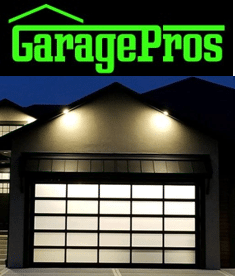Whether you’re a homeowner or business owner, your garage door is an important part of your property because it keeps your valuables safe and prevents theft. This makes it necessary to understand the signs that indicate it’s about to break down so that you can replace it on time and keep your assets secured.
Below, we will briefly explain the 5 signs your garage door opener is failing and most likely needs repair or replacement.
Signs Your Garage Door Opener Is Failing
If you notice any of the issues below, your garage door may need repairs or replacement. These signs include:
1. Unnecessary Noise
One of the many signs your garage door opener is failing is if it starts making more noise than usual. The sound may become louder or much sharper, especially if you use a chain-drive opener.
This loud, often grinding noise may also make your garage door open much slower, which indicates a struggling drive. If your garage door is making noise and opening slower, it’s time for some maintenance to ensure your garage door doesn’t break.
Sometimes, the drive may need a full replacement; other times, it could be that the springs aren’t properly balanced and need a little adjustment. Regardless of the reason, being proactive is better than having a stuck garage door that slows down business or locks you out of the house.
2. Occasional Power Loss
Does your garage door sometimes suddenly lose power, and you need to close or open it manually? This might mean that a capacitor is starting to fail. When a capacitor goes wrong, it usually makes a loud pop sound like a miniature bang.
In such an instance, smoke and acid from the capacitor spill all over the logic board, causing more damage to the circuitry. In this case, you should check the opener to see if you find these signs of damage. If it is a blown capacitor, then it is usually best to change the entire opener to avoid costly short-term repairs.
Remember that troubleshooting for any faults in a garage door is difficult and can result in a heavy monetary loss if anything goes astray. Therefore, you should contact a professional garage door repair company in order to examine the problem and repair it quickly at an affordable price.
3. Less Range On Remotes
On average, a regular garage door remote control covers about 20-50 feet away from your door, depending on the garage door design. When you notice that your garage door range has reduced drastically, it’s one of several signs your garage door opener is failing.
Try changing the batteries of your remote and examining the electronic interface (LEDs may be an issue). If these suggestions do not work, then it could just as well be the logic board of your opener which means you may need to have your opener’s logic board replaced or purchase a new opener.
4. Garage Door Won’t Close or Open Completely
Your garage door has a set travel distance when it closes or opens to ensure it doesn’t open too much and damage some components or close too little and provide no protection. So, if your garage door seems to be closing too much to too little, then you may have a failing travel module, encoder, or RPM sensor.
These components are in the door opener and are responsible for how far your door closes or opens. If either system fails, your garage door will lose its travel limit settings and behave inconsistently.
Diagnosing and fixing this issue is complicated, and it’s best to contact a professional to prevent further damage to other parts of your garage door.
5. The Garage Door Opener is Old
An ordinary garage door opener can last for 10 – 15 years, and if yours is approximately this age limit, it will likely stop working soon. For example, in a chain drive, metals might have been eroded or worn out, which can lead to noises and irregularities.
On the other hand, belt drives might have peeled off, causing a loss of hold and requiring extra power to lift your garage door. The best option in this case is to consider installing new drivers, or rather contemporary ones, to avoid such surprises.
Check out the advantages of more modernized types of doors for garages.
Need Garage Door Maintenance or Repair?
Ultimately, if you notice your garage door makes more noise, requires more power, moves slowly, or is just very old, these are the signs your garage door opener may be failing. However, these doors are heavy, intricate, and fragile, and it’s best to contact a professional to diagnose your opener and prevent further damage.
Garage Pros has a team of professional technicians who can diagnose and fix your door in a timely manner and with attention to detail. So, before your door becomes completely dysfunctional, reach out to Garage Pros today.








